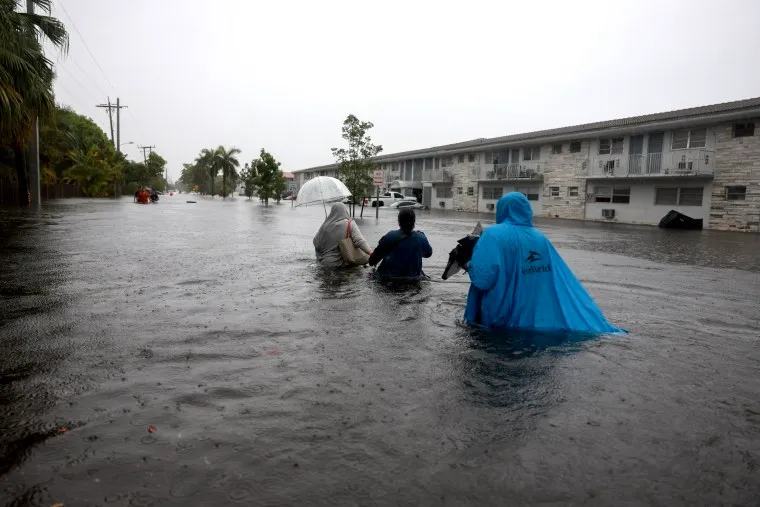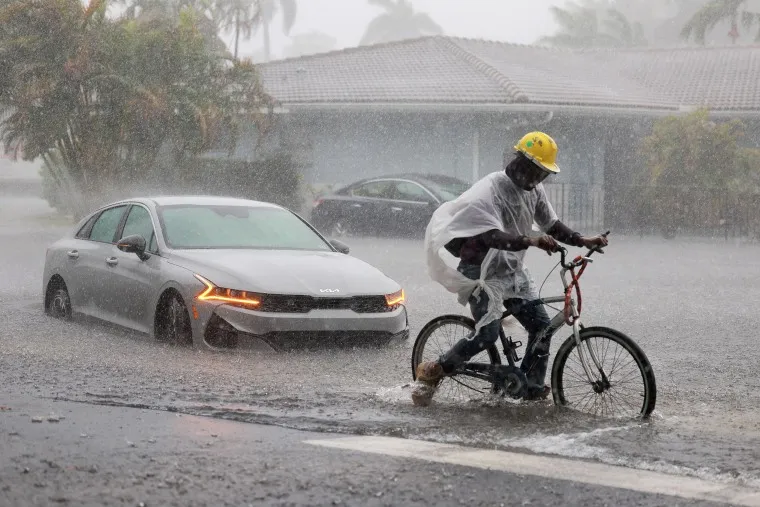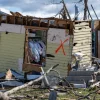Florida experienced record-breaking rain last night, with the southern part of the state under a flood watch until Thursday evening. The torrential downpour was particularly severe in cities like Miami and Fort Lauderdale, where the heaviest rainfall of the year occurred between 5pm and 8pm. In Sarasota, a staggering 4in of rain fell in a single hour, a feat that has never been seen before, according to David Parkinson, senior weather producer at CBS. “That’s the most ever in an hour,” he said, in awe of the extreme precipitation.
The Tampa Bay area was also hit hard, with 8in of rainfall in just three hours. This kind of extreme precipitation is a rarity for the region, occurring only once every 500 to 1,000 years. The resulting flash flooding caused cars to be submerged in the streets, leading to flight cancellations and widespread disruptions.
At the Miami international airport, there were over 450 delays and 50 cancellations, while at Fort Lauderdale-Hollywood international airport, there were more than 330 delays and a handful of cancellations, according to NBC Miami.
The intense rainfall is a sign of things to come, as the planet continues to warm and extreme precipitation events become more frequent. Since 1970, hourly rainfall intensity has increased in every region of the US, largely due to a warmer atmosphere that can hold more moisture, which is then released in the form of heavier rainfall.

Flooding continues to plague the US, accounting for over one-third of inland flood damage since 1988. Cities with impermeable surfaces or lack of terrain that can absorb rainfall have an increased risk of stormwater runoff, which can overwhelm wastewater management systems, leading to raw sewage flowing into surrounding bodies of water and posing a danger to people.
Floodwaters can contain a variety of hazards, including downed power lines, human and livestock waste, and infectious materials. Exposure to these waters can cause a range of health issues, from mild rashes to life-threatening infections.
As Florida slowly dries out, the state is left to grapple with the aftermath of this extreme weather event. Residents are left to wonder what the future holds, as the planet continues to warm and extreme precipitation events become more frequent and intense.

